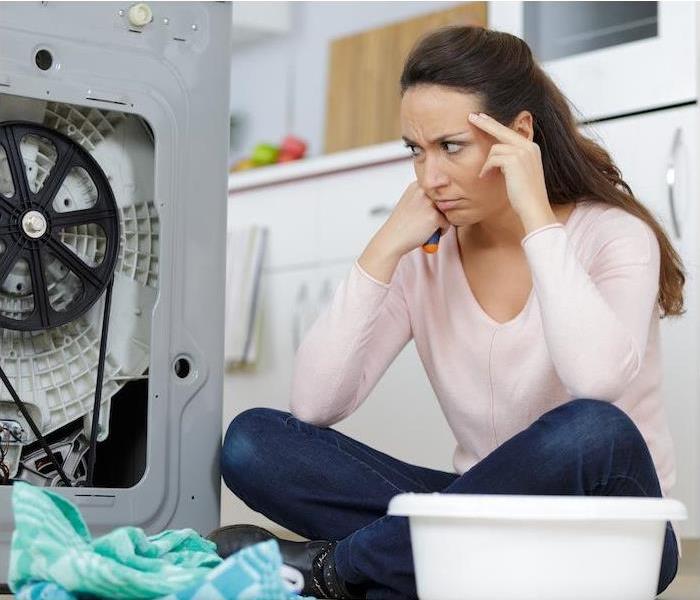Prevent Water Damage From Appliances | SERVPRO® of Queen Anne’s, Kent & Caroline Counties
1/31/2020 (Permalink)
 If your home has been impacted by water damage or you’d like to put a plan in place in case it happens to you, contact us to learn how we can help.
If your home has been impacted by water damage or you’d like to put a plan in place in case it happens to you, contact us to learn how we can help.
Regardless of the source of the issues, water damage can be a complicated and costly thing for homeowners to experience.
When that water damage comes from household appliances, however, it can be even more complicated. Because appliances can easily hide water damage, it is important to do regular inspections to avoid the problem worsening without you knowing.
Perform These Regular Appliance Inspections to Prevent Leaks
Hot Water Heater
Hot water heaters are fairly durable appliances overall, but their smaller components can fail early in their life. Hoses and seals are common points for leakage, so checking in often (especially if you notice decreased performance in your unit) is key to preventing damage.
Refrigerator
Refrigerators are so rarely moved away from the wall that they can harbor serious levels of water damage without anyone being aware of it. Their water lines can crack or develop tears, leading to seepage that can become a much larger problem when left untreated. Make inspecting behind the refrigerator a regular part of home maintenance to be safe.
Dishwasher
Just as with refrigerators, dishwashers are rarely moved, so it is good to get in the habit of checking behind them. They can have much larger leaks, which often will not be eligible for insurance coverage depending on the unit. Because of how much water dishwashers use, it is smart to check frequently for leaks to avoid large damages.
Washing Machine
The hoses that connect the washing machine to the water supply should be checked once a month for leaks or any signs of wear and tear, as they are common culprits of leaks. Even if they look perfectly fine, they should be replaced every five years to be safe.
Air Conditioner
An air conditioning unit creating condensation is normal, and generally, this moisture is quickly drained away. However, issues with these drains or water lines can lead to problems within the unit and water damage to the surrounding structures. Following your regular maintenance schedule and checking on your unit regularly during the warm months is the best prevention method for this.




 24/7 Emergency Service
24/7 Emergency Service